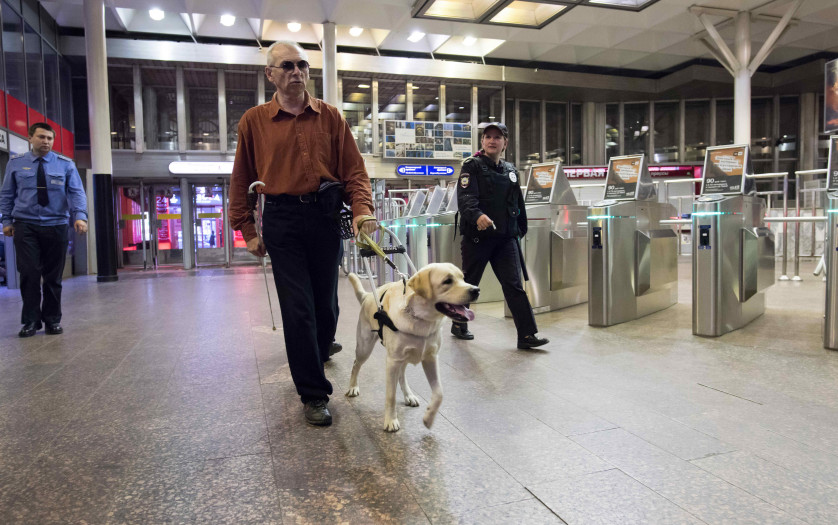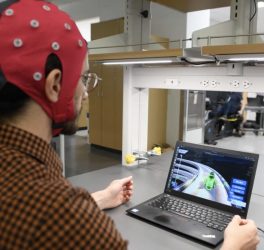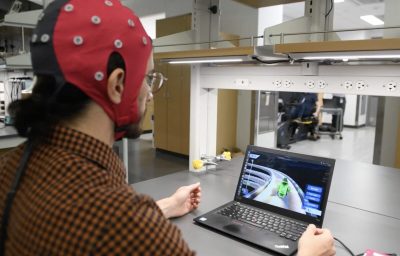
A unique technology created by Russian specialists will help blind and deaf-blind people to navigate at a record speed. This was made possible thanks to the new generation of intelligent assistant with artificial intelligence “Robin”, which was created in the Sensor-Tech laboratory.
The project was supported by the Charitable Foundation for the Deaf “Unity” and is being implemented as part of the roadmap of the National Technology Initiative.
The turbo search function allows the user to receive data about surrounding objects in a continuous mode. It is only necessary to hold down the button and Robin will list objects that are at a distance of 10 meters with an interval of 0.2 seconds. In addition, a smart assistant notifies you of possible obstacles along the way with the help of a vibration signal, which amplifies as you approach the object.
The device recognises almost 60 different objects. Among them are animals, food, vehicles, doors, household items and much more. The gadget tells the user what is next to him/her both at home and on the street, including in the dark.








